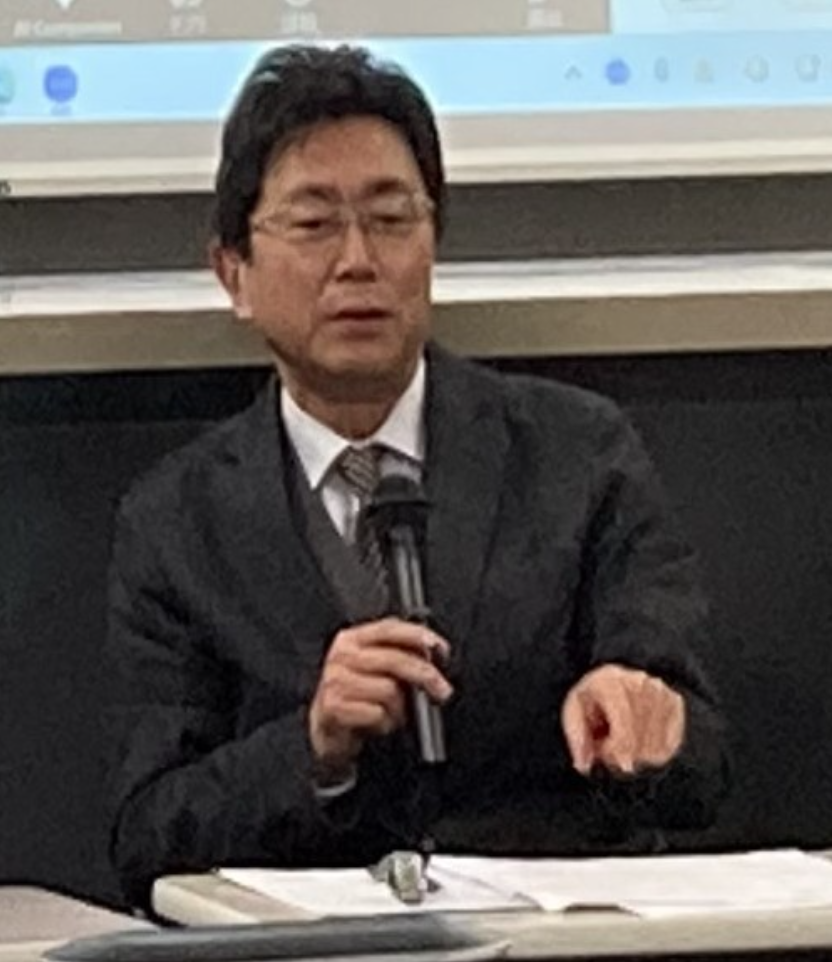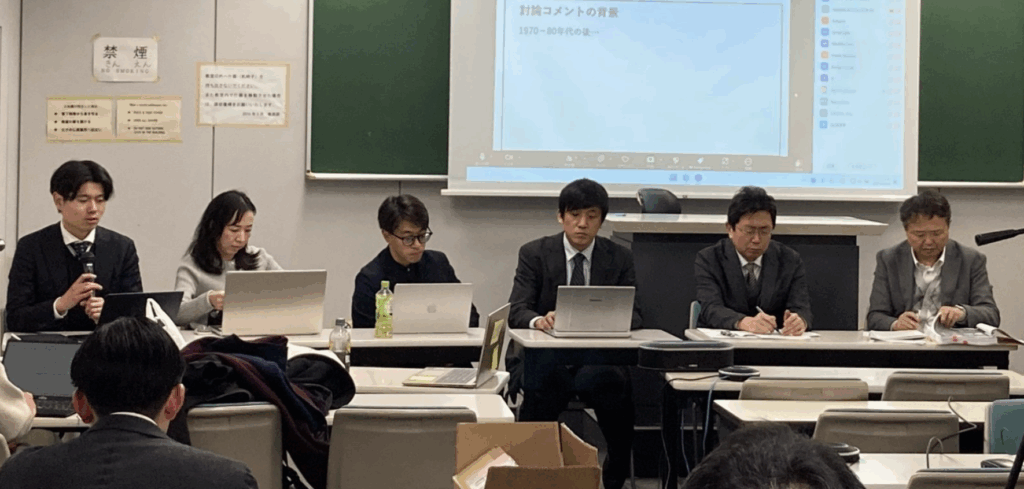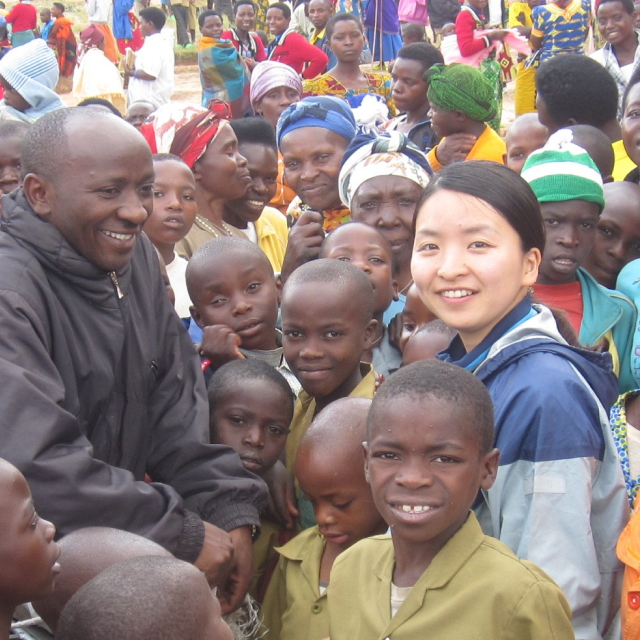Annual Reconciliation Studies Week (at the end of February)
The Security and Human Rights Team Report
The Security and Human Rights Team held the symposium entitled ‘US Human Rights Diplomacy and East Asia’ at Waseda University on Thursday 27 February 2025. Fifteen people attended in person, and 40 people participated online. The aim of this symposium was to consider the impact of US foreign policy in East Asia (South Korea, Taiwan, Okinawa) on the democratization from the 1970s to the 1980s.

Professor Takuya SASAKI
In the first part of the symposium, Professor Takuya Sasaki (Rikkyo University) gave the lecture on the human rights diplomacy of former US presidents Jimmy Carter and Ronald Reagan. Carter, who had witnessed racial discrimination in the South, conducted such diplomacy that emphasized morality, and cut military aid to the military regimes of Ethiopia, the Philippines, Iran and Latin America. At the time, he was criticized for ‘not sanctioning allies’ or ‘imposing more sanctioning.’ On the other hand, the Republic of South Africa appreciated Carter’s support for the movement to abolish apartheid. Through this kind of diplomacy, Carter was mourned at home and abroad when he died in 2024. The next president, Ronald Reagan, also conducted diplomacy that defended human rights, and he supported the ratification of the Genocide Convention.
In the second part of the symposium, young researchers gave presentations on the impact of US human rights diplomacy on the democratization of East Asia. Assistant Professor Hyeonrae Koh (Kanto Gakuin University) described the impact of Carter diplomacy on South Korea. The South Korean military government suppressed the citizens in the Gwangju Uprising in 1980, and Carter did not criticize them harshly, but he called for democratization. Assistant Professor Arata Hirai (Tokai University) explained the factors that led to Taiwan’s democratization. The first was the establishment of Formosan Association for Public Affairs (FAPA) by US senators to promote democratization in Taiwan, and the second was lobbying by the Taiwanese community in the US. Assistant Professor Fumi Inoue (Waseda University) concluded that Okinawa was not democratized by the citizens themselves, but rather by Japanese bureaucrats and the US military. She also introduced the history of the citizens’ movement itself.

Professor SASAKI and the Panelists
In response to these presentations, the discussant, Assistant Professor Satoshi Tanaka (Ritsumeikan University), pointed out the issues of why the US intervenes in the human rights issues of other countries and how much the human rights norms have been accepted. Professor Toyomi Asano (Waseda University), the moderator, asked each presenter how collective memory and human rights are related. It was discussed that the spread of human rights norms and democratization in East Asia could lead to reconciliation between countries that fought in past wars.


